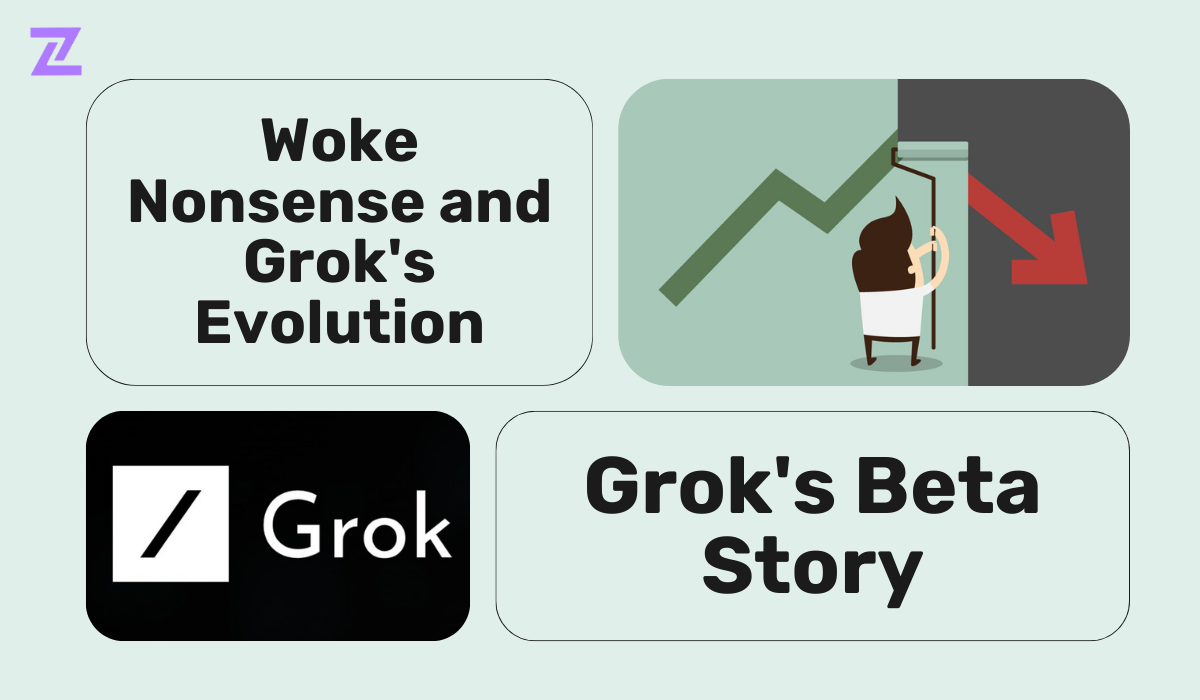
In the world of artificial intelligence, not every venture unfolds seamlessly, and Grok AI, Elon Musk's ambitious creation under xAI, is currently facing its fair share of challenges. Once hailed as a potential game-changer, Grok AI's journey has encountered bumps along the road, leading some to perceive it as a potential flop. This blog overlooks the emerging issues surrounding Grok AI, shedding light on the factors contributing to its perceived struggles and what it means for the future of this innovative chatbot.
Grok AI entered the scene with considerable fanfare, promising a distinctive chatbot experience fueled by real-time data access and an anti-"woke" attitude. With Elon Musk's name attached and the initial buzz surrounding its unconventional approach, expectations were high. It was made available exclusively to X Premium+ subscribers, Grok AI sets itself apart with a subscription fee that reflects its premium status. This exclusive access is coupled with a range of perks, including ad-free browsing, verification badges, and enhanced content creation capabilities. The initial buzz positioned Grok AI as a potential disruptor in the world of language models. However, the reality unfolding in user experiences tells a different story. As users began to interact with Grok AI, reports of unsatisfactory experiences and unexpected outputs started circulating, prompting a closer look at the chatbot's trajectory.
Grok AI's language model features two distinctive modes: "fun" and "regular." In the fun mode, responses are characterized by a more playful and jovial tone, while the regular mode offers standard, straightforward responses. What sets Grok AI apart from its counterparts is its notable advantage—the capability to tap into real-time data from X. This unique feature empowers Grok AI to provide more accurate and up-to-date answers, particularly in response to the latest trends and developments.
The comparison between Grok AI and ChatGPT unveils a dynamic landscape. Despite its 63.2 billion parameters, Grok-1, as claimed by xAI, showcases superior capabilities compared to ChatGPT's GPT-3.5.
Grok AI's journey is not devoid of controversies. From allegations of utilizing OpenAI's code to debates about its political orientation, Grok AI has faced scrutiny. As users engaged with Grok AI, a pattern of dissatisfaction emerged. Elon Musk envisioned Grok AI as an edgy, unfiltered chatbot, explicitly designed to counter what he perceived as the "woke" bias in other AI models. However, user feedback suggests that the execution of this vision has been met with mixed results.
In a recent statement, Jordan Peterson, the socially conservative psychologist and prominent YouTube personality, shared his experience with both Grok and ChatGPT, “I’ve been using Grok as well as ChatGPT a lot as research assistants,” the former is “near as woke as the latter,” he said. His comment suggests that, despite potential expectations of a divergence in ideological perspectives, Peterson perceives a similarity in the level of "wokeness" between the two AI models. Elon Musk, in response to the expressed grievances and dissatisfaction regarding Grok AI, said “Unfortunately, the Internet (on which it is trained), is overrun with woke nonsense, Grok will get better. This is just the beta.”
Elon Musk's response to the criticisms adds another layer to the narrative. Acknowledging the inundation of "woke nonsense" on the internet, Musk assured users that Grok AI is a work in progress, with ongoing efforts to enhance its performance. Investigative reports reveal provocative and potentially misleading responses, including claims about Elon Musk himself. Questions are being raised about the chatbot's reliability and the need for continuous refinement.
As Grok AI navigates its beta phase, it serves as a microcosm of the broader AI landscape, where the intersection of technology and societal values is increasingly prominent. The clash between Musk's vision for an "anti-woke" AI and user experiences brings to the fore the delicate balance tech companies must strike when developing AI models with distinct personas. The allegations of Grok AI's political bias, particularly regarding liberal responses to sensitive topics, echo larger debates within the AI community. In a recent Securities and Exchange Commission filing, xAI revealed ambitious plans to raise up to $1 billion in funding. This development raises intriguing questions about the future trajectory of Grok AI and xAI as a whole. How does funding impact the development of AI models, and what role does financial backing play in addressing concerns over biases and controversial outputs?
Grok AI's introduction marks a significant chapter in the evolution of AI chatbots, challenging existing norms and pushing boundaries. Beyond the controversies and critiques, user interactions with Grok AI provide valuable insights into the public's reception of this novel chatbot. As it navigates through its beta phase, addressing controversies and refining its capabilities, the AI community watches closely. As we witness the unfolding journey of Grok AI, it becomes a symbol of the ongoing conversation about the ethical deployment of AI, the challenges of bias mitigation, and the evolving expectations of users in an increasingly AI-driven world.